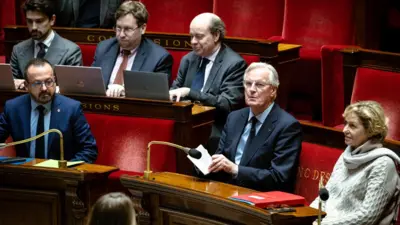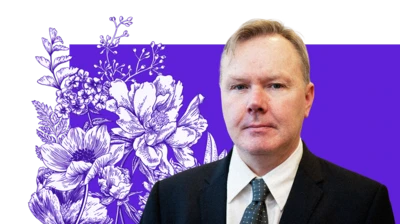We've updated our Privacy and Cookies Policy
We've made some important changes to our Privacy and Cookies Policy and we want you to know what this means for you and your data.
What is the thinking behind the 50p tax rate pledge?
Image source, Reuters
- Author, Joe Lynam
- Role, Business correspondent, │╔╚╦┐ý╩Í News
Labour has said it will bring back the 50p top rate of income tax if it wins the next election. So what could be the thinking behind this promise?
Individuals may not feel it but taxes have been tumbling over the past few decades, as countries actively compete with each other for investment by highly mobile but often disloyal multinationals.
In 1979 the top rate of income tax in the UK stood at 83% and now stands at half that (45%).
Corporation Tax - taxes applied to company profits - has fallen from 33% in 1995 and will be 21% this year.
But Labour's plans to raise the top rate of income tax from 45% to 50% for those earning more than £150,000 could be more about appearances than monetary gain.
The party has not put an estimate on how much would be earned from it.
And the government has said its decision to cut the top rate from 50p to 45p reduced Treasury income by only £100m - a figure which was endorsed by the independent forecaster, the Office for Budget Responsibility, although the OBR also said there were huge uncertainties surrounding that figure.
Labour disputes this, saying later figures show almost £10bn more was paid in tax in the three years the 50p tax rate was in use.
Business leaders are more worried about the message that a tax hike might send out to the wider business world - coming as it does along with further plans announced by Labour to intervene directly in the energy and banking sectors.
They hypothesise that large companies sitting on cash piles worth billions of pounds - and who are wondering where and how to invest their money - might look at Labour's planned interventionism and baulk.
Furthermore, well-paid executives may not wish to move to a country where take-home pay is less than half of their gross pay - once national insurance is deducted.
Of course, Labour has tried to counter this fear by saying that, if elected in 2015, their husbandry of the public finances will be as strict if not stricter than that of the Conservatives.
They say they would stick to the current government's spending plans in their first year in power, cut benefits for wealthy pensioners and pass laws to balance the books every year.
After the economic shock of 2007-8 - which all but collapsed the entire banking system and caused the deepest recession in a century - it is clear that the prudent management of the economy is the most important thing for many voters.
By reinstating the 50p top rate Labour may be hoping it will be seen as being on the side of workers and not the wealthy.
The party wants primarily to be on the side of voters, not trade unions or big companies.
But Financial Secretary to the Treasury Sajid Javid said: "Labour got us into a mess by spending too much, borrowing too much and taxing too much.
"And now Ed Balls is proposing more spending, more borrowing and more taxes. It's the same old Labour - they haven't changed and they have no long-term economic plan for the future."
Peter Kellner from pollsters YouGov said voters used to perceive Labour as "nice but dim" while Tories were seen as "smart but mean". The challenge for Labour is being seen by the public as nice and smart.
Top Stories
More to explore
Most read
Content is not available








